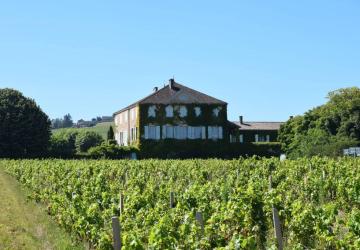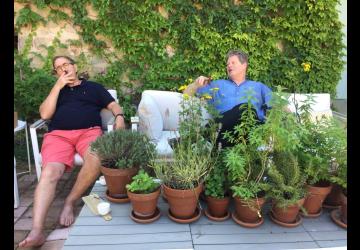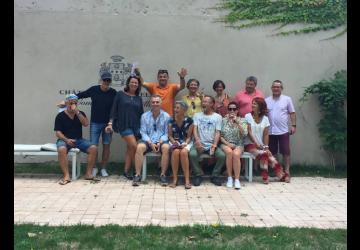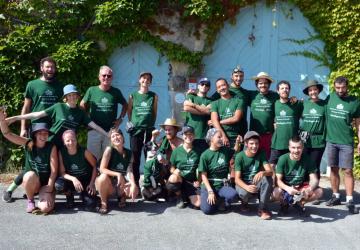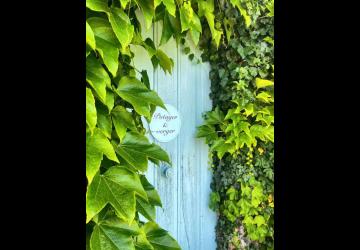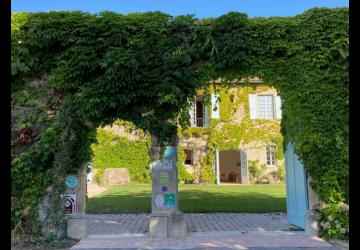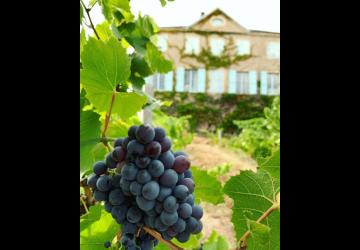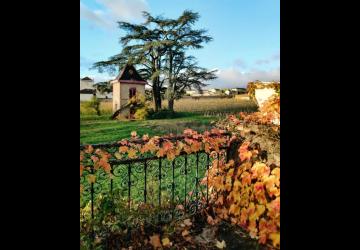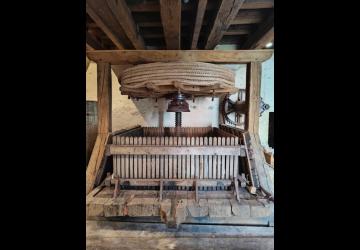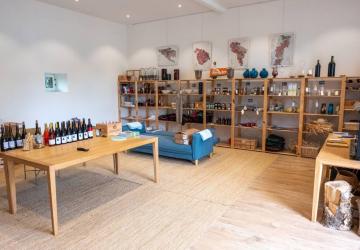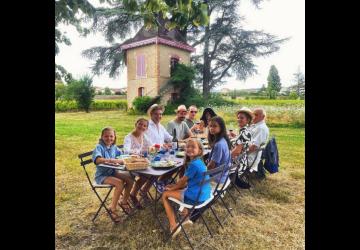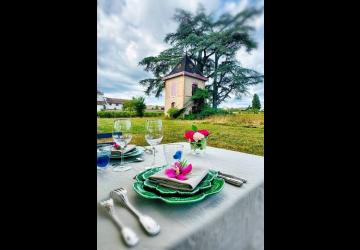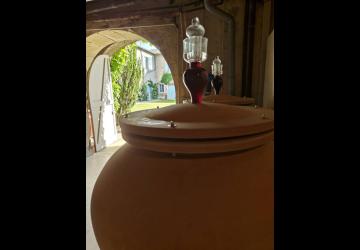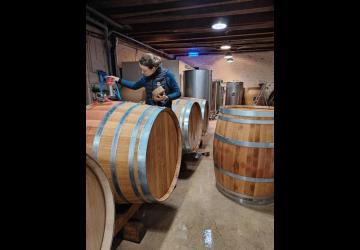Château des Bachelards
FleurieThe Château des Bachelards is an exceptional wine estate of 18ha located in Fleurie. Without any use of chemicals since 2007, the Château was one of the pioneers of Biodynamics in the region; is triple certified in Organic and Biodynamic farming. We have also been awarded the 'Vignobles & Découvertes' label for the quality of our welcome services.
"In choosing to drink the Château des Bâchelars' Demeter-certified organic and biodynamic wines, you are doing your part in helping our estate thrive, and we would like to thank you."
A SMALL CHÂTEAU WITH A GREAT HERITAGE, LIVING VINES, RESPECTED SOILS, AND ICONIC WINES.
Founded around 1100 by the Benedictine monks of Cluny, Château des Bachelards is an exceptional vineyard located in Fleurie, north of Beaujolais. Spanning 18 hectares, including 7 contiguous hectares surrounding the château in the Fleurie AOC, the estate also has plots in Beaujolais Villages, Saint-Amour, and Moulin-à-Vent.
A pioneer of biodynamics in the region, Château des Bachelards has been cultivating its vines without any use of chemicals since 2007. Its commitment is recognized by triple certification: organic farming (FR-BIO-15), Demeter, and Biodyvin. The Clos des Bachelards, the only monopoly of Fleurie, is cultivated like a garden, fostering a rich ecosystem where vines, hedges, and agroforestry coexist harmoniously to preserve the natural balance of the biotope.
In order to enhance our terroir, our estate does not practice carbonic maceration, semi-carbonic maceration, or thermovinification. We do not use any artificial yeast. The wines have their own identity and resemble only themselves; they are of the land.
A STRONG COMMITMENT TO A LIVING VINEYARD
Château des Bachelards upholds a demanding and respectful viticulture, inspired by the know-how of the Cluniac monks. Every decision is guided by the desire to reveal the purest expression of the terroir:
• High planting density (10,000 vines/ha) and limited yields to ensure complex, deep wines.
Agroforestry and biodiversity: hedges, cover crops, and the natural presence of bees promoting ecosystem balance.
• Old vines with mass selection, preserving the genetic heritage of the Gamay grape.
• Organic and biodynamic viticulture: respectful pruning of sap flow, lunar cycle work, manual harvesting, and gravity-fed reception.
• Long and natural vinifications: only indigenous yeasts, no carbonic maceration, semi-carbonic maceration, or thermovinification.
• Careful and precise aging: amphorae, concrete vats, large casks, and demi-muids are used to enhance the terroir.
WINES ACCLAIMED BY THE CRITICS
The wines of Château des Bachelards combine the elegance of Burgundy with the richness of the Rhône Valley, offering a unique expression of Gamay. Their exceptional quality has earned them the highest accolades. The Clos des Bachelards, the unique monopoly of Fleurie, has been awarded 97 and 98/100 by James Suckling, confirming its place among the great French wines.
THE CLOS DES BACHELARDS: A VINEYARD GARDEN
At the heart of the estate, the Clos des Bachelards is a true sanctuary of nature, cultivated with meticulous care and in full respect of biodynamic principles. Enclosed and protected, this clos is worked like a garden, where each vine receives special attention. This living microcosm fosters exceptional biodiversity that enriches the complexity of the wines and reveals the uniqueness of this extraordinary terroir.
UNIQUE OENOTOURISM EXPERIENCES
At Château des Bachelards, every visit is an immersion into the world of biodynamics and living wine.
Marjolaine, oenotourism manager, is delighted to welcome you throughout the year to discover the estate and its craftsmanship. During visits, she guides you through the vineyards and cellar, sharing the secrets of biodynamics and the creation of these exceptional wines.
Whether you're a connoisseur of great wines or simply curious to explore an extraordinary vineyard, Château des Bachelards opens its doors for an authentic and unforgettable experience.
Come visit the Château and soak up the harmony reigning in the vineyards of the estate, share a moment of French art de vivre, and watch the sun set over the chapel of La Madone de Fleurie while enjoying a glass of wine on the terrace. Discover the château's facilities from the vine to the cellars in order to understand the different stages in the production of a great wine. You will be offered a commented tasting of the estate's wines, one of which will be served blind! Cooking lessons, food and wine pairings, picnic in the vineyards or discovery of the profession of winegrower. On reservation.

